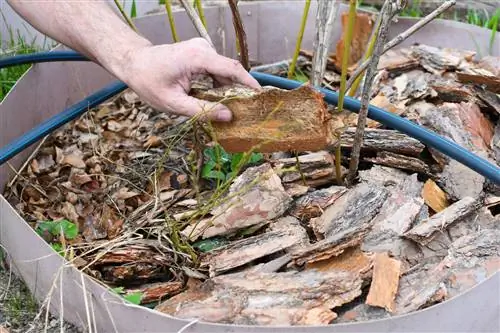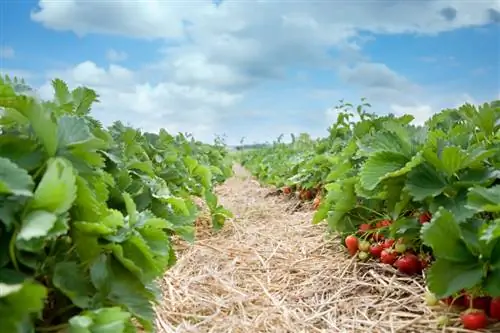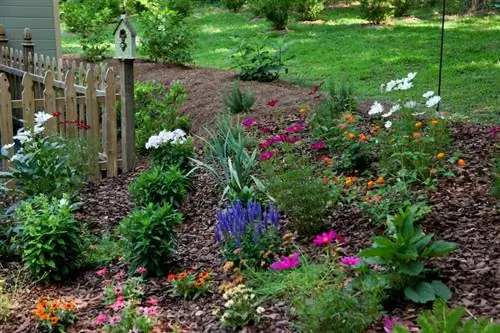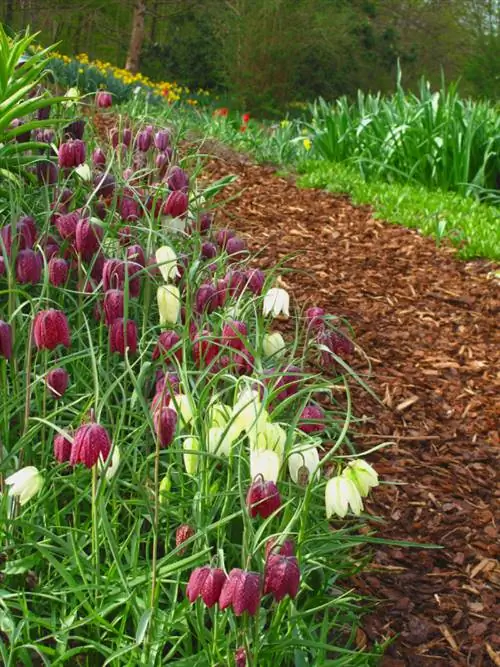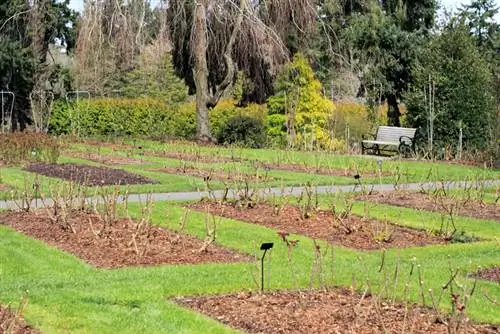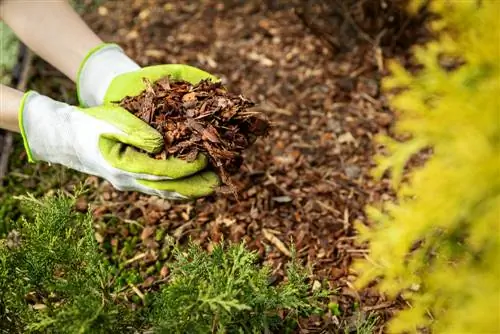- Author admin [email protected].
- Public 2023-12-16 16:46.
- Last modified 2025-01-23 11:22.
Blueberries grow naturally in moorland and sparse forests. In the garden or in container cultivation they prefer slightly acidic soil. If you pamper the blueberry bush with bark mulch, it will thank you with lots of fruit.
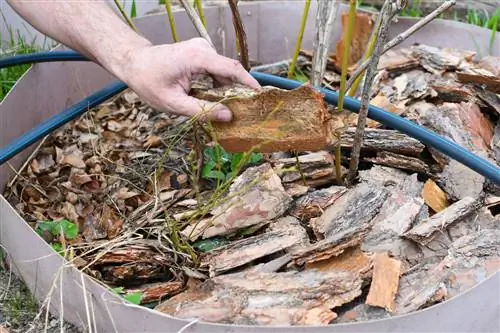
Is bark mulch good for blueberries?
Blueberries tomulching, bringsmany advantages Bark mulch acts as a long-term fertilizer and serves as evaporation protection in summer. For blueberries in pots, it improves the substrate. That's why you can increase the harvest yield of cultivated blueberries with a layer of bark mulch.
Does mulching blueberries increase the yield?
A layer of bark mulch is consideredinsider tiptoblueberry harvesttoincrease. The mulch layer corresponds to the raw humus cover in the natural location and brings the following advantages, which ultimately have a positive effect on the harvest:
- keeps the soil acidic in the long term
- natural long-term fertilization
- Evaporation protection
How do I mulch planted blueberries?
After planting, planted blueberries receive alayer of bark mulch in the root area The layer height should be about the height of your hand. You can also mix equal parts of bark mulch, pine needles and leaves and use it to fill half of the planting hole. Add moorland or rhododendron soil on top and place the blueberry bush in it.
How is bark mulch used for blueberries in pots?
When growing blueberries in pots, bark mulch is added to the pot. To do this, mix leaves, pine needles and bark mulch well in equal parts. Then fill the pot about halfway with the mixture. To plant the blueberry bush, use rhododendron or ericaceous soil.
Tip
Distribute bark mulch
Plant several blueberry bushes in a bed and spread the bark mulch over the entire bed area. If the blueberry bed is completely covered, the mulch layer protects the bushes from uncontrolled growth.

